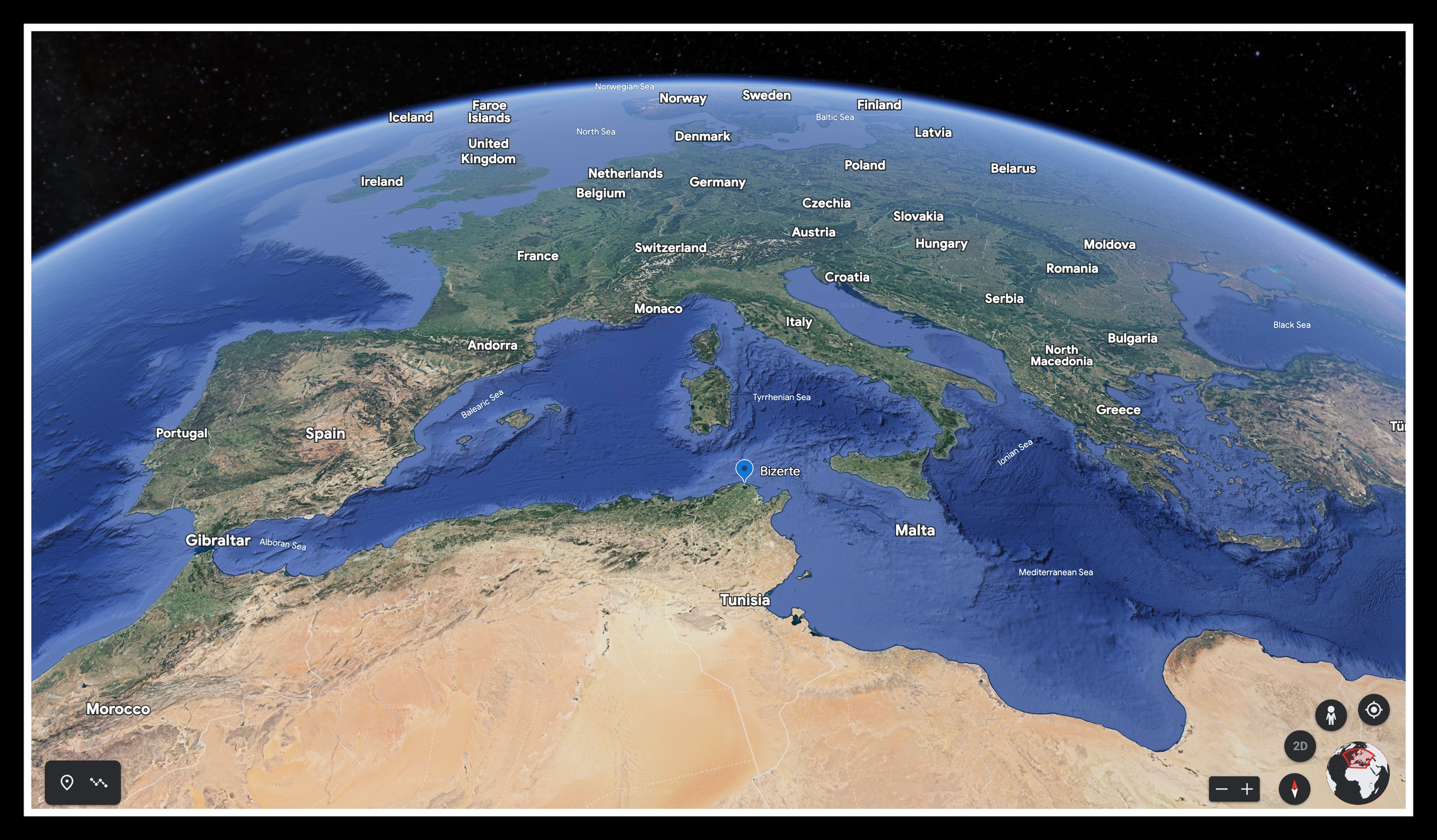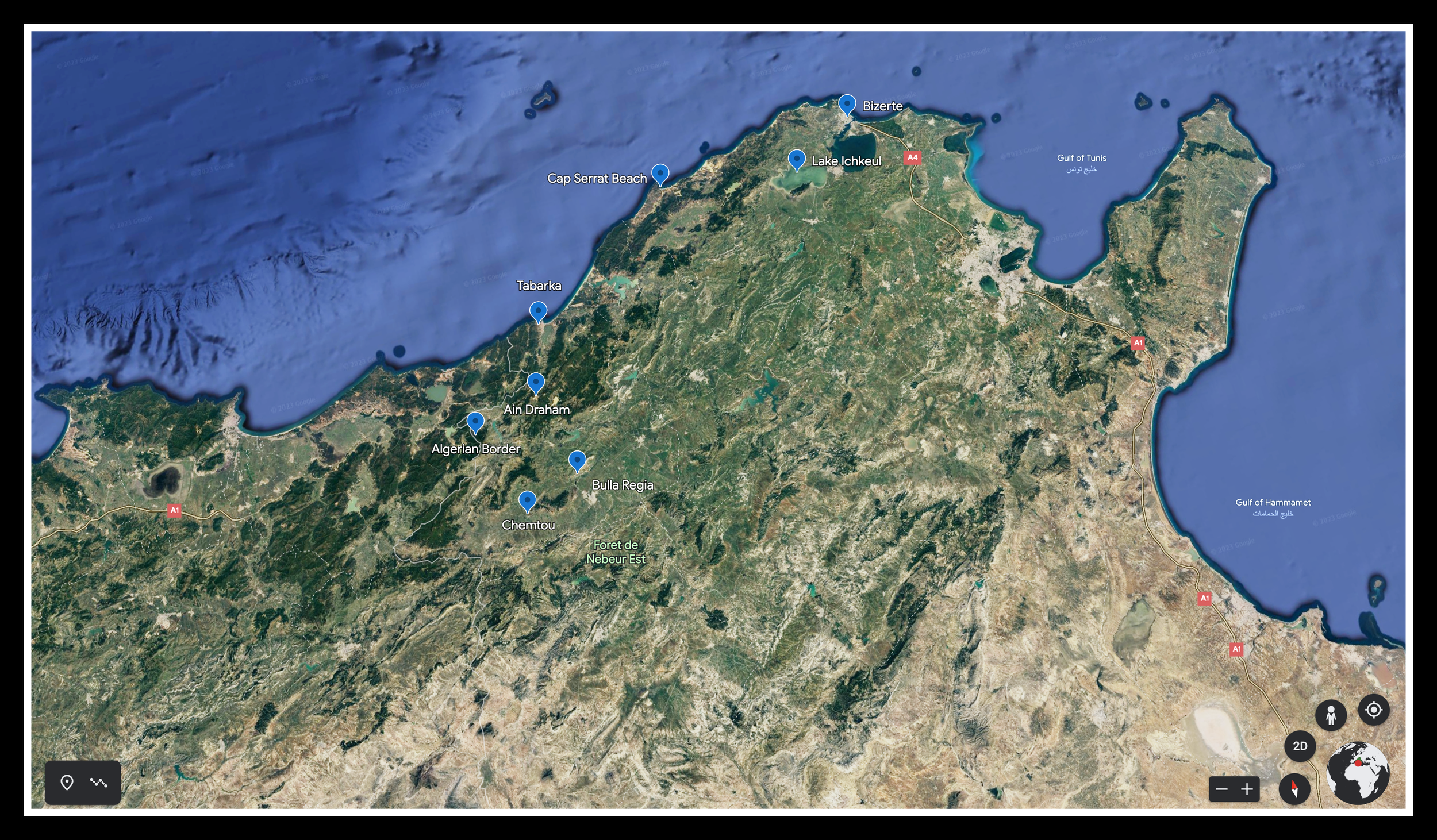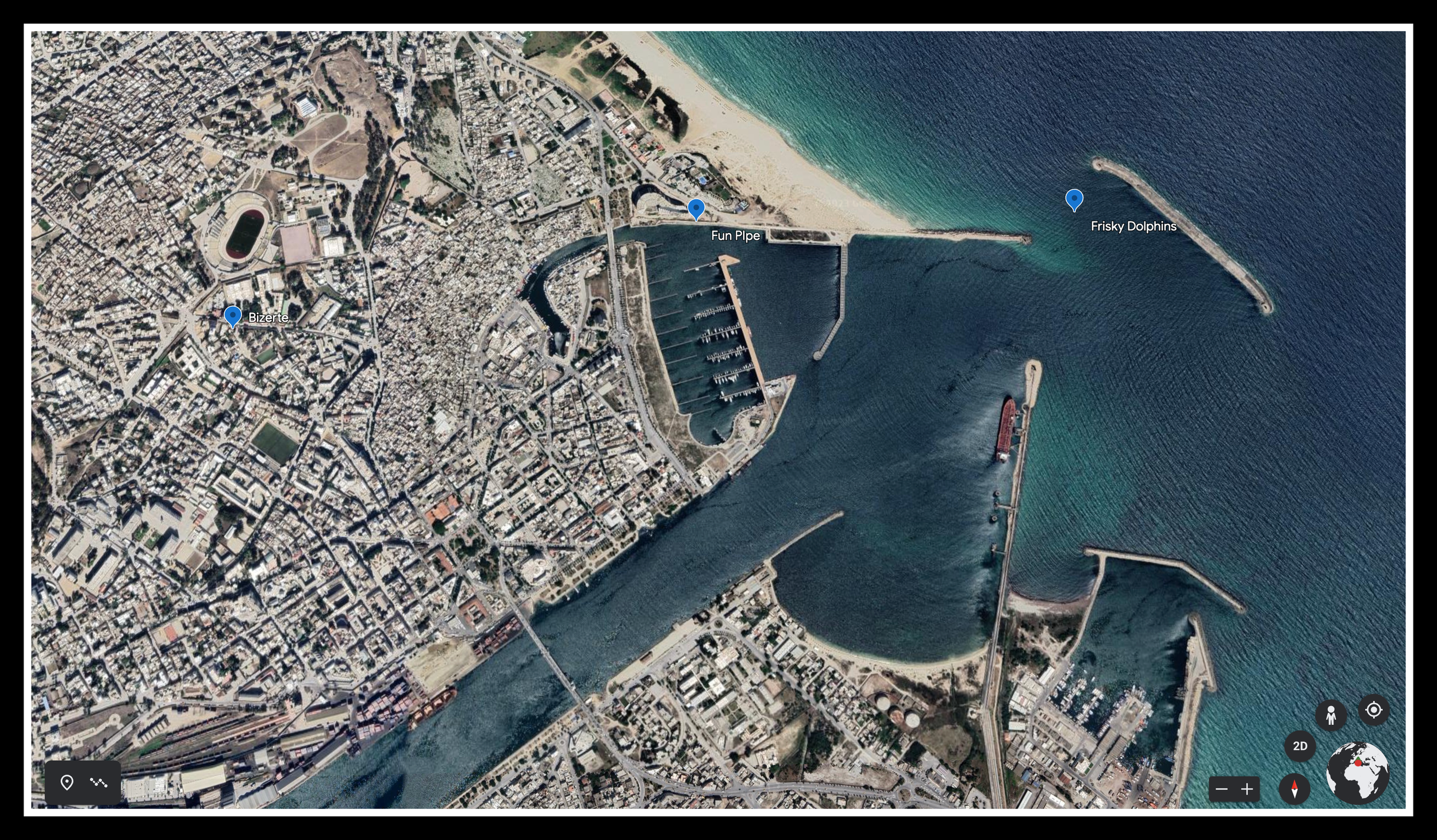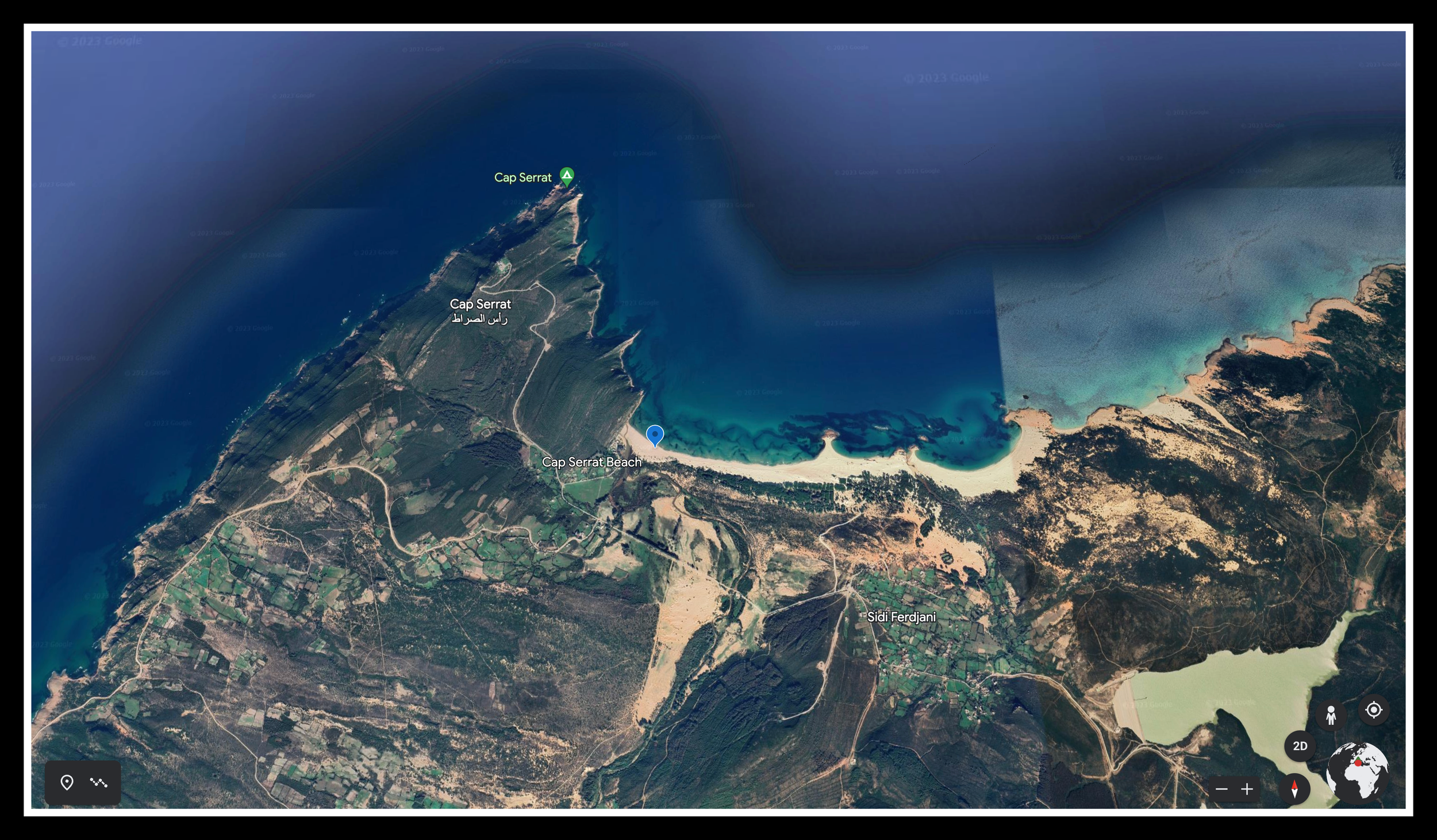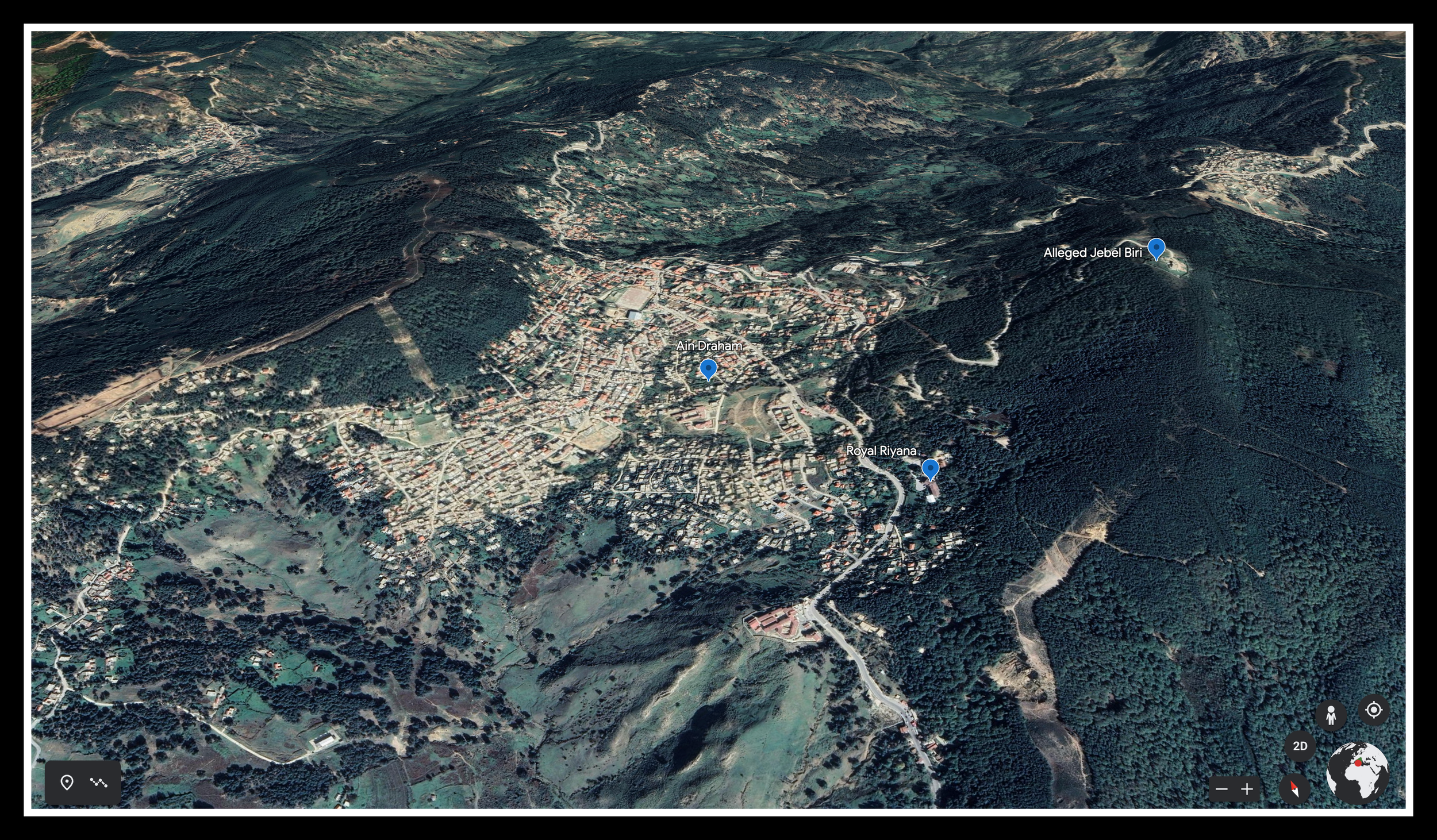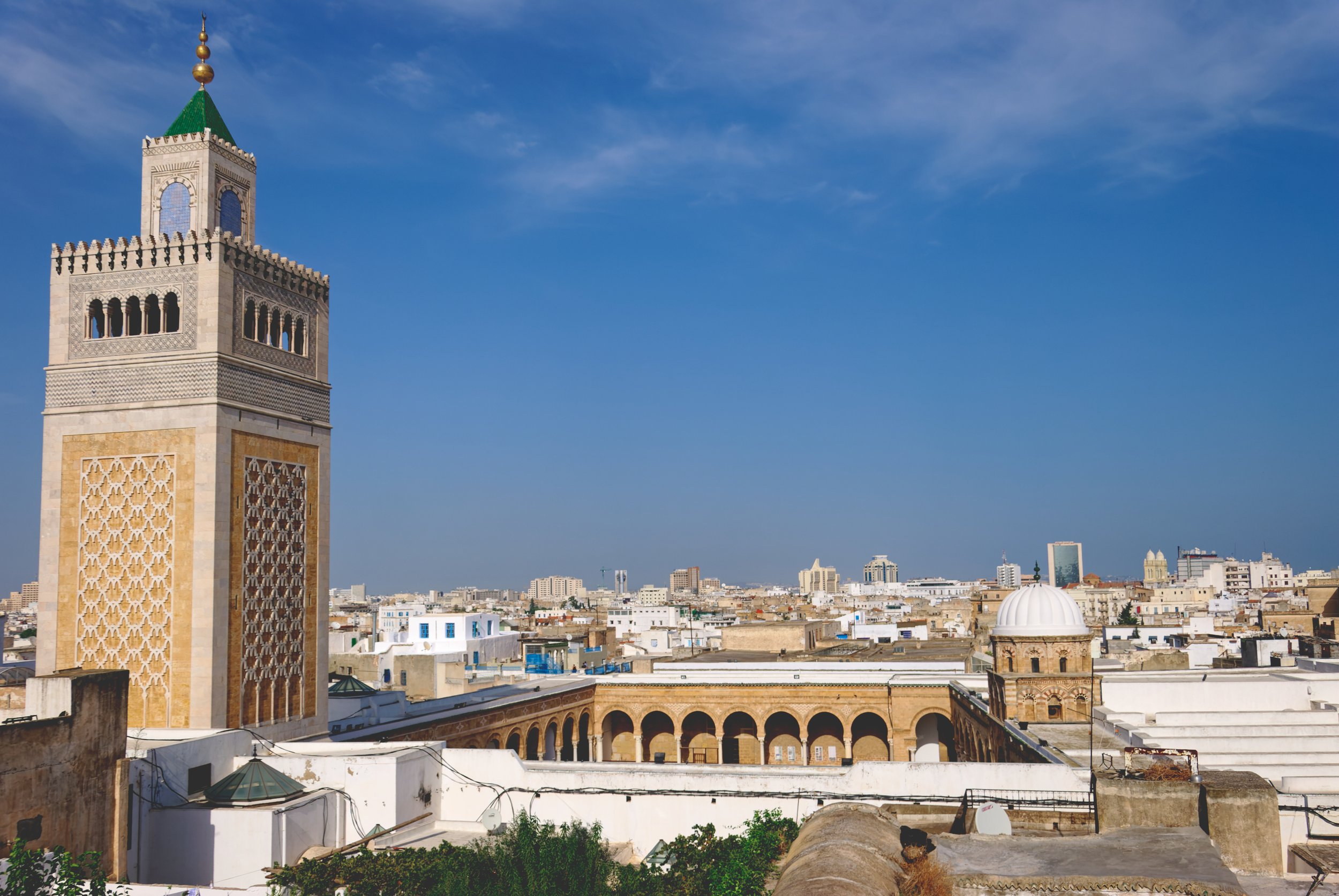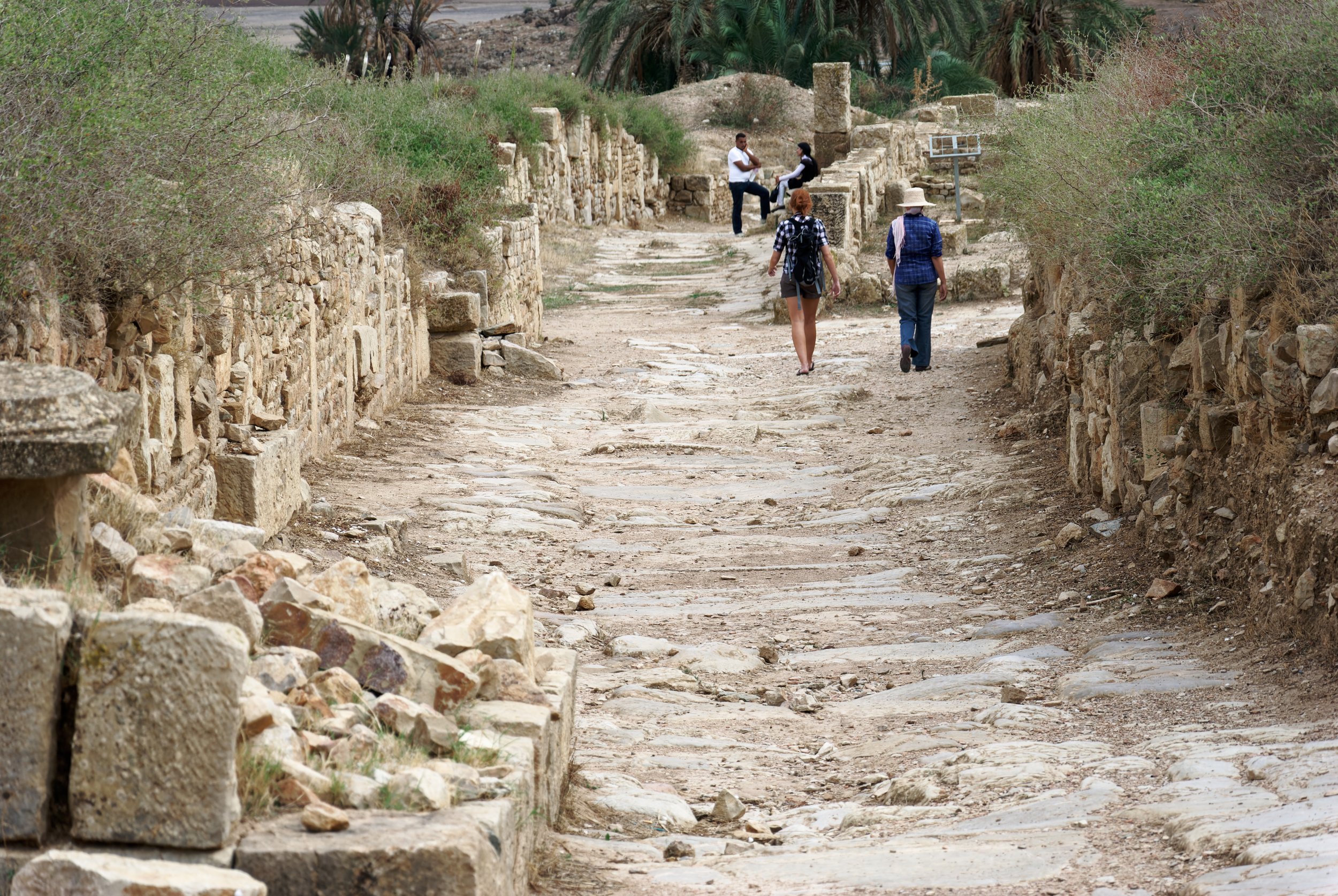170 - Northern Tunisia And Mutton For Punishment
[A strange thing happened since my Tunisia visit—the world lost its shit. Even before Covid upended our world, the Arab Spring upended the Middle East. Leslie and I missed the “festivities” by about a month. Some would say we dodged a bullet, but I can’t help feeling like we missed the boat. How often do you have the chance to watch history unfold from the front row? Yes, I could almost taste repression in the air, but if you told me the powder keg was about to ignite, I’d have been incredulous in the extreme. Yet, there it was, boiling just beneath the surface. Keep this in mind. It makes for a fascinating subtext.]
MANUAL TRANSMISSION? NO PROBLEM. OR IS IT? In ideal circumstances, my skills are passable, though the streets of Tunis are far from ideal. Between driving in a foreign country and nebulous road etiquette, I was a teensy bit anxious. I clenched my ass cheeks and rode into the breach. Tunis is madness from behind the wheel for those uninitiated. I’m sure rules exist but didn’t seem to apply from my precarious vantage point. Drive anywhere, walk anywhere, do anything, as long as you can get away with it. I only stalled the engine a few times on the way out of Tunis. Not killing pedestrians or totaling the Fiat Punto was an added bonus. Super.
Most Americans are road pussies, spoiled by the proliferation of automatic transmission. I was no exception, though I had just enough experience to convince myself I could pull it off. Anxiety-induced pants-shitting colored my driving experiences across the globe. Having driven a motorcycle in Indonesia, Sri Lanka, Thailand, Bolivia, and northern Vietnam, as well as cars and SUVs in southern Spain and Australia (other side of the road), I was resilient enough to overcome anxiety and forge ahead… probably. Personal transport is a trip multiplier almost anywhere, and I wasn’t about to let the prospect of death or permanent disfigurement fuck up my romantic adventure. Live free or die, ya heard!
Once we’d overcome Tunis’ escape velocity, all was copacetic, and I began to unclench. The seaside city of Bizerte, sixty-five kilometers north of the capital, was our first stop. It happens to be the northernmost city in Africa, which, you can imagine, excited the shit out of us. (Well, no.) We consulted the Lonely Planet and found what I can only describe as a quaint shithole (Hotel El-Fetah). There were more expensive options, but they could hardly justify the expense. We dropped our gear and explored the old harbor and medina, both excellent areas for a relaxing saunter. Something about the cobblestone walkway along the small bay lined with colorful fishing boats and cafes makes one almost want to doze off. An excellent place to watch the day wind down.
After emerging from the medina, we made our way to the man-made jetty by the beach. We were distracted by large pipes meant for an undetermined or defunct construction project propped up a few feet above the ground on the shore. They were fabricated from unknown material (unknown to me, that is) and possessed intriguing acoustic properties. We harnessed our inner five-year-olds and began screaming, hooting, clapping, and whistling into the void for an undisclosed length of time.
We lingered on the jetty while staring out to sea in the dying light. A small dolphin pod was kind enough to stop by and do… whatever the hell it is they were doing. The frisky bastards propelled themselves belly up in the air in an odd aquatic dance, making for excellent theater. Thank you, Flipper.
“After walking up the hill past the medina, we were greeted by an old man pointing to the Spanish Fort behind him. In broken English, he requested a few dinar for the entrance fee, which we later learned was nonexistent. It’s possible (not probable) he wasn’t trying to dupe us, and just wanted some change, but I can’t be certain due to the language barrier; I suppose the correct thing to do is give him the benefit of a doubt. It’s just that when you stand next to a gate and ask for money it certainly implies that a fee is due. Perhaps I should give it a whirl one of these days. After all, you know what they say: Work smarter, not harder. After shelling over the coin, he pointed out his barely breathing dog (still not sure why), and then disappeared.
The fort was boarded up, so there was nothing to gain from our visit, besides a semi-decent view from atop the amphitheater. We took a short break, and then decided to make our way across town to walk along the jetty. As we made our way down the sandy center, we came upon several large steel pipes strewn about; what ensued next will probably remain one of the most memorable moments from the entire trip. We clapped, hooted, hollered, and even sang into the pipes for what seemed like a while. The pipes amplified and echoed the sound which resulted in nonstop belly-aching laughter, especially on my part. It was the purest form of childlike happiness, and it didn’t cost a thing; proving it really is the simple things in life that are most enjoyable.”
— Leslie Peralta, “All Signs Point North” - Soledad: Notes From My Travels…
Courtesy of The Dreamer Wild and Free
After a delicious Italian dinner and a fitful night's sleep inside said shithole, we packed the goddamn Punto and veered west. Outside town, we were stopped by the police for brushing off a traffic cop ushering vehicles from a side road onto the main route. I was supposed to stop until directed to proceed, but this was far from clear. Neither of the policemen looked in my direction and the road ahead appeared to have two lanes. Well, as I rolled on by with a dopey look, a member of Bizerte's Finest ushered me to the roadside. He mumbled something in French, asked for what I believe to be the car's registration, realized we spoke neither French nor Arabic, then waved us on out of pure frustration. Dumb white people… pffft.
We made a pit stop in Ichkeul National Park for a brief morning hike and a panoramic view of Lake Ichkeul. The lake (shallow and brackish) is an eco-hotspot home to over 230 species of birds, owing its unique environmental status to seasonal variations of salinity. Dam construction on three of the rivers feeding the lake knocked the system out of whack and nearly eliminated the area’s migrant denizens. Tunisia took steps to stem the tide and the area continues to recover, though the ultimate outcome is uncertain. I’m guessing this place is a wet dream for a twitcher with a telescopic lens. Grab a camera and get the fuck out there.
We landed on Cap Serrat Beach, spending a night within earshot of Mediterranean waves lapping the coast. The area is pleasant, but not quite as “dazzling” as the Lonely Planet makes out. (Fucking liars.) Still, it’s a great place to chill and offers up an agreeable beach for strolling. Leslie summed it up best. “It’s a lovely area with tons of potential. It just needs a little TLC… and a dumpster.” Sure did. (I have a sneaky suspicion a visit closer to peak season with a 4WD and more sunshine might dramatically alter one’s experience. Also, a shitload of disposable income.
Northern Tunisia is worth a peek, even if only glimpsed through a car window via a meandering drive. Rolling hills, vast tracks of picturesque farmland, seaside cliffs overlooking the Mediterranean, deserted country roads, and a mellow vibe make it worth your time. Do it.
Courtesy of Fishing Planet Innovation
Alcohol can be a tricky proposition in Islamic countries. Tunisia is lenient when it comes to tourists, and not just with alcohol. (Think gallivanting cross-country with an unmarried woman in shorts.) Cultural sensitivity was foremost on my mind, but I’d seen enough boorish behavior by Team Europe to think our mild transgressions probably didn’t rate with most locals… probably We stopped at a Monoprix in tourist-oriented Tabarka to stock up on necessities. The spirits inventory bedazzled us. Like preppers anticipating an asteroid strike, we filled our cart with liquid immorality and got the hell out before someone objected. Six bottles of wine, two bottles of gin, a bottle of vodka, and enough tonic water to bath in. Sinners.
Tunisian wine is fabulous and fabulously cheap. At the time, a decent bottle of vino cost between $2.00 - $4.00 US. Delicious. Smooth. Affordable. As a bonus, we noticed the hangovers were tolerable, either due to a slightly lower alcohol content or a lack of preservatives and additives, or both. It was an alcoholic’s fucking dream scenario. One may infer we were two benders away from Alcoholics Anonymous (AA), but, in truth, we were only stocking up in case of scarcity down the road… probably.
We stopped at a seaside promontory for a gander, then took a shits-and-giggles drive to the Algerian border before stopping in the “mountain” town of Ain Draham (900 meters) for the night. We were stopped on the way in by Ain Draham's finest for a passport and registration check. They provided free smiles. We reciprocated.
We checked in at our hotel and then went by the Royal Riyana (at the behest of the LP) to make inquiries about a potential hike up Jebel Biri (1014 meters) the following day. This made sense considering its location at the bottom of the hill/mountain. The reception clerk spoke zero English, telling us (allegedly) to call in the morning to see if a guide was available. Rain forced a retreat to our room where we were rewarded with a welcome surprise—English movie channels. Fuck yeah! The cinematic fare included a terrible Scott Baio movie (“terrible” may be redundant), Crash, and part of King Kong. We’d just been discussing “Crash” hours before, which could only mean one thing: The universe wanted us to watch that movie. Oh, the fickle hand of Fate. I’m not sure the universe wanted us to pickle our brains in gin and tonic, but we did so just to be safe.
We returned to the Royal Ryan the next morning. No guide in sight. Undeterred, we forged ahead, climbing the hill northeast of the hotel we thought was Jebel Biri. I’m not so sure. No hill by that name seems to exist. I’m not sure the hill we climbed has a name, or if it’s the hill we should’ve been climbing in the first place. We never did make it to the top (marked by a cell tower). Instead, we fumbled our way through the hillside until we ran into one too many obstacles (dead-end pathways, thick brush, etc.) and retreated in defeat. Still, it was a pleasant stroll on a pleasant morning and helped brush away the gin cobwebs from the previous evening. I'd read the area is ideal for hiking, mountain biking, and horseback riding, but we didn’t know how to make that happen. This struck me as odd. We were obvious targets for tourist exploitation. Off season, perhaps? Service likely required a grasp of French and a nonchalant attitude concerning money. Then again, maybe we just missed the signs, literal and figurative.
On our way out of Ain, we passed a roadside stall with a man waving frantically at our car. What do you do when a man standing in front of a grill next to a glass case with a butchered animal hanging inside waves in your direction? You turn that fucking car around and get there posthaste. Our morning hike left us peckish, so we figured, what the hell. We had no idea what we were about to eat (sheep, as it were). To say this man was giddy is an understatement. How giddy? He wanted to roast up two kilos of meat. As Leslie and I weren’t starting defensive tackles for the New York Giants, I motioned and grunted for a bit less.
Though most flavorful, I equate eating mutton to gnawing on a greasy ball of fat. Sounds disgusting. Tastes divine. I’m certain he overcharged us (duh), but that was my fault for not inquiring about the price first. In the car, after we’d finished, we had an after-action review. This is what we think happened: Johnny Sheepbone spotted the blue license plate and Team Whitestuff inside. He beckoned us for an obnoxious pile of meat and a subtle screwing. It’s all about presentation and delivery. His smile and eagerness to please intoxicated us. We were powerless to resist, and we loved it. Random encounters are the best kind. Thanks again, universe.
Next stop: Bulla Regia.
“Bulla Regia was a Berber, Punic, and Roman town near present-day Jendouba, Tunisia. Its surviving ruins and archaeological site are noted for their Hadrianic-era semi-subterranean housing, a protection from the fierce heat and effects of the sun. Many of the mosaic floors have been left in place; others may be seen at the Bardo Museum in Tunis. There is also a small museum connected with the site.” (From Wikipedia, the free encyclopedia.)
Originally a Berber settlement, the site is famous in the world of archeology for its well-preserved semi-subterranean homes built with the intense summer heat in mind. What’s most notable is the pristine nature of some underground dwellings, no doubt aided by the dust and debris that buried the region after the Arabs abandoned it in the 7th century. It’s hard to fathom what the Romans managed to accomplish and how much of their handiwork remains. Just the intricate and well-maintained system of roads is sufficient to boggle thy mind. One of my photos is what I like to think of as Roman Tunisia’s version of Route 66. Yes.
From there, we made a brief stop at Chemtou, the site of the largest marble quarry in North Africa. It’s where the Romans extracted the highly coveted yellow marble prized throughout the empire. Although the implications and efforts involved are fascinating to ponder, this site itself isn’t terrifically exciting, at least not for lay folks. All museum exhibits being labeled in French and German didn’t help, nor did the fact no guides presented themselves. That, with our level of fatigue, may have colored our perception. Give it a shot.
Courtesy of TunisiaTourismTV
“With the car safely in our possession and our anxiety levels in check, it was time to put Rich’s driving skills to the test, and hit the road. While navigating the busy streets of Tunis in a 5-speed sounded mildly entertaining, I thought it best to let him take the wheel, and what a good idea that was.
To put it bluntly, people here just don’t give a (bleep) when it comes to traffic safety. Stop signs, traffic lights, and cross walks prove useless. People dodge in and out of traffic whenever, wherever – no joke. Don’t even get me started on sidewalks. Why would you use one when you can walk in the middle of the street instead? Makes perfect sense, right? Riiight.
We managed to make it out of the city while only stalling the car a few times. Of course, I can’t take credit for the minor feat; hat’s off to Rich on that one. I would have surely doubled, maybe even tripled the number. Once on the freeway it was smooth sailing the rest of the way.
We arrived in the city of Bizerte later that afternoon. We drove around in search of a place to stay, and eventually decided on Hotel El-Fetah, thanks to the Lonely Planet recommendation. I can’t say I agree with their take on this place. It was definitely cheap and noisy (we forgot to ask for a room in the back), but the shared facilities were far from “spotless”, like they mentioned. Oh, and the shower… let’s just say we both opted to do without the next day. The offensive buildup and crusty towels didn’t exactly summon that fresh-and-clean feeling one hopes for.
After settling into our hotel, we made our way down to the old port to take in the multicolored boats and cute kids trolling for fish. A few of them were kind enough to let me snap some photos and show off their bounty. I’m not sure why this is, but I take to foreign children much more than I do to those at home. Perhaps it has something to do with witnessing them in their playful state, enjoying the outdoors as they should be, instead of glued to the TV watching the likes of Hannah Montana and Dora The Explorer – I don’t know, just a thought.
After walking up the hill past the medina, we were greeted by an old man pointing to the Spanish Fort behind him. In broken English he requested a few dinar for the entrance fee, which we later learned was nonexistent. It’s possible (not probably) that he wasn’t trying to dupe us, and just wanted some change, but I can’t be certain due to the language barrier; I suppose the correct thing to do is give him the benefit of a doubt. It’s just that when you stand next to a gate and ask for money it certainly implies that a fee is due. Perhaps I should give it a whirl one of these days. After all, you know what they say: Work smarter, not harder. After shelling over the coin, he pointed out his barely breathing dog (still not sure why), and then disappeared.
The fort was boarded up, so there was nothing to gain from our visit, besides a semi-decent view from atop the amphitheater. We took a short break and then decided to make our way across town to walk along the jetty. As we made our way down the sandy center, we came upon several large steel pipes strewn about. What ensued next will probably remain one of the most memorable moments from the entire trip. We clapped, hooted, hollered, and even sang into the pipes for what seemed like hours (probably minutes).The pipes amplified and echoed the sound which resulted in nonstop belly-aching laughter, especially on my part. It was the purest form of childlike happiness, and it didn’t cost a thing, proving it really is the simple things in life that are most enjoyable.
We arose bright and early (not by choice), with our sights set on our next stop: a small beach about an hour and a half away by the name of Cap Serrata. We stopped at Ichkuel National Park for a quick hike, and then continued west. The drive was picturesque, with rolling hills cluttered by olive and eucalyptus trees; the sun shining brightly the entire time.
As usual, Rich was a good sport and put up with my game of twenty questions; I basically drilled away – a skill I’ve perfected over the years. When we arrived at our destination, we checked into the only accommodations available in the area (it’s rather remote), and then headed to the beach. It’s a lovely area with tons of potential. It just needs a little TLC… and a dumpster.”
Leslie Peralta, “All Signs Point North” — Soledad: Notes From My Travels
“After breakfast it was time to hit the road again. We continued west to the city of Tabarka. Within minutes of arriving we could tell that there wasn’t much to see or do, so our stay would be brief. Tunisia is an Islamic country, so alcohol can be hard to come by. Fortunately, we were in luck. The local Monoprix offered quite the selection, so we thought it best to stock up. Like two kids in a candy store, we filled our basket to the brim. Wine? Check. Vodka? Check. Gin? Check. Tonic? Check. Now, I know how this sounds. The truth is, we don’t drink that much. It’s just nice to know that we can enjoy the occasional glass of wine or cocktail if we so choose. It’s better to have the option, than not. At least that’s my philosophy.
With our “box of sin,” as Rich so aptly named it, tucked safely in the trunk, it was time to move on. Our next stop would be the small town of Ain Draham in the Kroumirie Mountains, where we would attempt to do some trekking. We decided to take a short detour along the way, stopping at a nice viewpoint, and then driving to the Algerian border for a quick look-see. It pays to have your own transportation.
As we strolled into Ain Draham, we were stopped by the local police – something we would experience multiple times over the next few days. These stops are pretty straightforward. They come to the window, and in a mix of French and broken English, ask where we’re from, if we speak the language, and then request to see our passports and vehicle registration. A quick glance, an exchange of smiles, and we’re on our way within minutes. I should probably give Rich some credit for perfecting the “I’m white, ignorant, and not worth your time” persona. It helps to ward off potential schemers looking for bribes.
After checking into our hotel, we went to the Royal Riyana to inquire about trekking arrangements for the following morning (according to LP, you must hire a guide, because the trails are difficult to find). The gentleman at the front desk was confused, but advised us to return the next morning at 9am to speak with another employee. We were without set plans, but remained fairly optimistic.
The rain started to pour as we made our way back to the hotel, so we opted to stay in for the night. Much to our surprise, the room had satellite TV with a few English movie channels – Yay! Our evening consisted of watching a horrible Scott Baio movie (not my fault), Crash (which we actually discussed earlier in the day – strange), part of King Kong, and drowning in a sea of gin & tonics.
Feeling slightly sluggish the next morning, we packed up our Punto and headed to the Royal Riyana once more. Unfortunately, we walked away sans guide. Determined to hike, we attempted to make our way up Jebel Biri: the highest peak in the area, or so we read. Finding our way to the top proved impossible. We followed multiple footpaths only to end up in the bushes. At least we got some exercise.
Having worked up an appetite, we opted to grab lunch at a roadside stand on our way out of town. We received a plate full of fatty mystery meat and some bread. Several days later we learned that our “mystery meat” was actually sheep. How did we figure it out? Why, the bloody carcasses lining the streets farther south, of course. Apparently sheep is very popular in these parts. We had consumed it in other dishes without even knowing it. Baaahhh!
Making good time, we visited the roman ruins of Bulla Regia, and marble quarries in Chemtou later that afternoon. Bulla Regia hosts some pretty impressive underground villa’s that are still in the process of being excavated. The town emerged in about 5th century BC, reaching its peak of prosperity in 2nd and 3rd century AD, later to be abandon during the Arab conquest. If you’re ever in the area, it’s definitely worth checking out. Chemtou on the other hand, didn’t exactly wow us. That’s not to say it should be passed up – I just think we were tired and our attention spans were dwindling by the second…”
Leslie Peralta, “Box Of Sin, Mystery Meat, And Roman Ruins” — Soledad: Notes From My Travels

